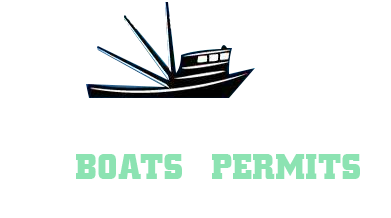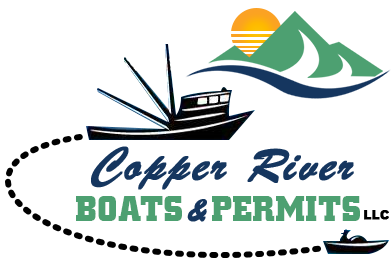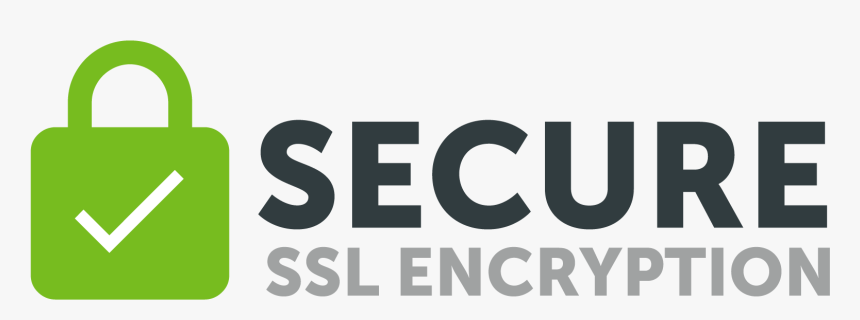Commercial Fishing Vessel Buyer's Guide
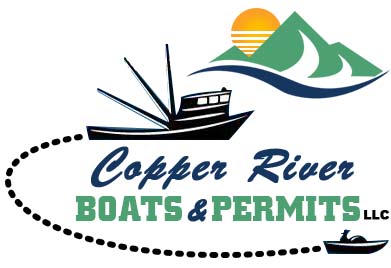
Copper River Boats & Permits
Buyer’s Guide for
Purchasing a Commercial Fishing Vessel
Purchasing a commercial fishing vessel is more than just a transaction—it’s a decision that shapes your operation, your livelihood, and the success of your business. As a family that’s been fishing in Alaska for generations, we’ve seen it all. We know how critical it is to choose the right boat. The wrong one can cost you in downtime, maintenance, and frustration. Here’s our guide to help you navigate this important decision, so you can make the choice that’s right for you and your fishing operation.
1. Determine the Best Type of Commercial Fishing Vessel for Your Operation:
Choosing the right commercial fishing vessel is crucial. The type of fishing you do and where you’re working makes all the difference in what vessel you should choose. A boat that doesn’t match your needs can cost you time, energy, and money—things we don’t have to spare.
Here are some key types of fishing vessels to consider:
- Bowpickers: For those of us working the Copper River Delta or the inshore waters of Alaska, the Bowpicker is as iconic as they come. Built specifically for salmon fishing, these boats are designed to make net deployment and retrieval easy and efficient. Over the decades, these boats have been used to harvest some of the finest salmon, and their stability and maneuverability make them ideal for Alaska’s inshore waters. If you’re after salmon in our cold, rugged rivers, this is the boat you need in your fleet.
- Purse Seiners: If you’re targeting schools of fish—like salmon, herring, or sardines—purse seiners are the best tool for the job. These vessels use huge nets to surround schools of fish, and they’re made to work fast, especially when you’re working with large quantities. We’ve spent countless days chasing schools of fish, and these boats are incredibly effective when the catch is abundant, and you need to move quickly.
- Longliners: If you’re after big-game fishlike halibut, black cod, Pacific cod, lingcod or pelagic species such as tuna or swordfish, longliners are a solid choice. These boats are built for deep-sea fishing, with long lines and hooks to catch those larger fish. They take some experience to handle, but they’re great for those who need to go long distances for their catch. Over the years, we’ve used these boats and know they can take a beating, but you have to be sure the engine is powerful enough to get you where you need to go.
- Trawlers: These are the heavy-duty workhorses of the commercial fishing world. If you’re out on the open water pulling heavy nets for shrimp, cod, or other bottom-dwelling fish such as halibut, a trawler is probably what you need. They’re built to handle long trips, large catches, and tough conditions, but be mindful—bigger boats come with bigger fuel bills and higher maintenance costs. Bigger isn’t always better.
- Multipurpose Vessels: Sometimes, you just need a boat that can do a little of everything. If you’re running a variety of fishing methods, a multipurpose vessel might be your best bet. These boats are built for versatility, so you can switch between different gear setups depending on the season or market demands.
2. Boat Size and Storage Capacity:
Choosing the right size boat is critical. It’s all about finding the sweet spot between the size you need for your operation and not overpaying for something that’s too big. When you’re on the water, size affects everything from fuel consumption to maneuverability to how much catch you can store.
- Length and Beam: Longer boats tend to be more stable, especially in rougher waters, but they can also be harder to maneuver in tighter spaces. A wider beam gives you more deck space for gear, crew, and your catch. If you’re working in tight inlets or small harbors, a more compact boat might be what you need.
- Storage Capacity: Don’t forget about storage! You need a boat that can handle the amount of catch you’re targeting, whether that’s thousands of pounds of salmon or a few tons of cod. Make sure there’s enough hold space for both your catch and your equipment, and that the boat’s design allows for safe, secure storage to preserve the quality of your fish.
3. Engine Power and Fuel Efficiency:
A fishing boat’s engine has its heartbeat, and you need one that’s reliable, powerful, and efficient. Over the years, we’ve learned that choosing the right engine isn’t just about horsepower—it’s about balancing power with fuel efficiency. You want enough power to get you to the fishing grounds, but you don’t want to waste money on fuel, especially when fuel costs can make or break a fishing operation.
- Engine Power: Consider how far you need to go and the type of fishing you’ll be doing. If you’re going offshore for long trips, you’ll need a more powerful engine to handle the rough seas. For inshore or river fishing, a smaller, more efficient engine might be enough to get you where you need to be without burning excess fuel.
- Fuel Efficiency: Fuel is one of your biggest operating costs, so it’s worth investing in an engine that gives you the best mileage possible. A more efficient engine can reduce your overall costs and help keep your business profitable, especially when you’re putting in long hours on the water.
4. Boat Durability and Maintenance:
Fishing vessels are put through their paces, especially in Alaska’s harsh conditions. Saltwater, rough seas, and long hours can take a toll on a boat. That’s why durability and ease of maintenance are so important. A boat that’s built to last will save you time, money, and headaches in the long run.
- Materials: Choose boats made from durable materials like fiberglass, aluminum, or stainless steel. These materials stand up to corrosion and wear and tear better than others. The right materials will ensure your vessel holds up through the years, especially in tough conditions like Alaska’s cold waters.
- Maintenance: Keep in mind that regular maintenance is crucial for keeping your boat in top shape. Look for a vessel that has easy access to critical parts and comes with clear maintenance guidelines. A well-maintained boat will save you from costly repairs down the road and keep you out on the water longer.
5. Safety Features and Compliance with Regulations:
Safety is something to never take lightly. Commercial fishing can be a dangerous business, and ensuring your vessel is up to safety standards is non-negotiable. In addition to the regulations, you’ll need the right safety equipment to protect yourself, your crew, and your catch.
- Safety Equipment: Every boat should be equipped with life rafts, fire extinguishers, life jackets, first aid kits, and emergency signaling devices. Make sure your vessel is outfitted with the necessary safety gear before you head out on the water.
- Regulatory Compliance: Whether it’s state, federal, or local regulations, make sure your boat meets the required safety and operational standards. In Alaska, there are specific guidelines you must follow to operate legally and safely in the waters.
6. New vs. Used Commercial Fishing Vessels:
Deciding between a new or used boat comes down to budget and your long-term goals. We’ve well versed on both situations—buying new boats and getting great value from used ones. Here’s what you need to know:
- New Boats: New boats come with the latest technology, warranties, and the peace of mind that everything is in pristine condition. But with that comes a higher price tag and depreciation once you hit the water.
- Used Boats: Used boats can save you money upfront, but it’s important to do your due diligence. Make sure you have a marine surveyor inspect the vessel for any hidden damage or wear. A well-maintained used boat can still have many years of service left in it.
7. Financing Your Commercial Fishing Vessel:
Buying a boat is a big investment, but it doesn’t have to be an overwhelming one. There are financing options available to make this purchase more manageable.
- Loans: Many fishermen opt for loans to finance their vessels. Shop around for the best rates and terms to make sure you’re getting the best deal.
- Leasing: If you don’t want to commit to a large upfront payment, leasing might be an option. It allows you to pay as you go while using the boat for your fishing operations.
- Marine Financing: Specialized marine financing can offer competitive rates for commercial boats. Be sure to compare offers and find the best fit for your financial situation.
At Copper River Boats & Permits, we work with trusted lenders to offer you financing options that make sense for your operation. We’re here to help guide you through the process so you can make an informed decision.
8. Cost Considerations Beyond the Purchase Price:
When you’re buying a commercial fishing vessel, don’t forget the ongoing costs that come with it. Fuel, insurance, and repairs are all part of the equation.
- Fuel Costs: Fuel is one of your largest ongoing expenses, so it’s crucial to choose a boat that’s fuel-efficient.
- Insurance: Make sure your boat is covered with comprehensive insurance. You need protection for both the vessel and the crew.
- Repairs and Maintenance: Budget for repairs and routine maintenance to keep your boat in top condition.
9. Reputation of the Manufacturer:
The manufacturer’s reputation matters. Choose a manufacturer that’s known for building reliable, durable boats. A reputable manufacturer will provide quality customer service and easy access to parts and support when needed.
Conclusion:
Purchasing a commercial fishing vessel is a decision that requires careful thought, research, and experience. At Copper River Boats & Permits, we’re here to share our knowledge and help you make the best choice for your operation. Whether you’re looking for a new or used vessel, financing options, or just some friendly advice, we’re proud to be part of your fishing journey. Feel free to reach out to us anytime. We’ve been there ourselves, and we’re happy to guide you through the process with the care and commitment that will keep your family on the water for generations.
Contact Info:
- Broker: Margaret Arvidson
-
710 Third Street
P.O. Box 1722
Cordova, AK 99574 - Cell: 907.202.0012
- Local: 907.424.5335
- Email: info@crboats-permits.com
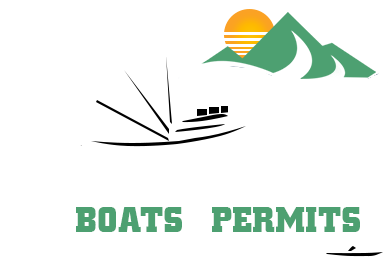
Copper River Boats & Permits LLC is acting as a broker and simply posting information provided to us by sellers. Our brokers have not inspected any of the items listed on the website. As such, we do not warrant the condition of any vessel, gear, equipment, or crew member listed on our site. All buyers must do their own due diligence and inspect the item being purchased. Buyer Beware. We provide no warranties express or implied.
Stay Up to Date!
Subscribe to our newsletter today!
Important Disclaimer: Copper River Boats & Permits LLC is acting as a broker and simply posting information provided to us by sellers. Our brokers have not inspected any of the items listed on the website. As such, we do not warrant the condition of any vessel, gear, equipment, or crew member listed on our site. All buyers must do their own due diligence and inspect the item being purchased. Buyer Beware. We provide no warranties express or implied.
Copyright (c) 2021. Copper River Boats & Permits, LLC. All Rights Reserved.
